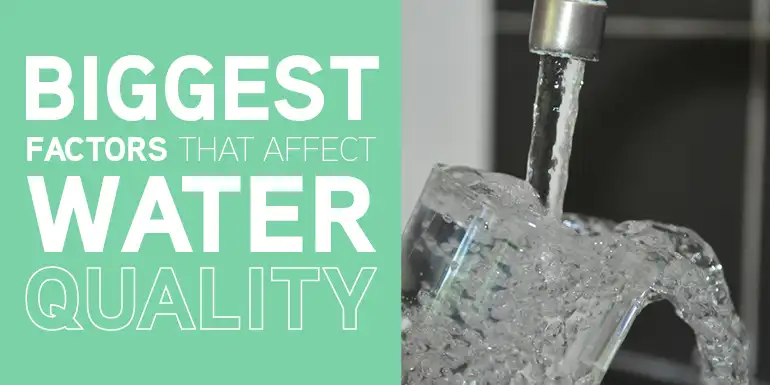
The only thing more important than having access to water itself is that your water is clean and safe for drinking. Most homeowners don’t have to worry about the quality of the tap water coming out of their faucets. However, with recent catastrophes like that of Flint, Michigan, it’s important to identify the factors that influence water quality and some ways you can improve your water at home.
The Factors
There are several factors, both environmental and “manmade,” that influence water quality. Some of the biggest factors include:
- Sedimentation
- Runoff
- Erosion
- Dissolved oxygen
- pH
- Temperature
- Pesticides
- Detergents
- Litter/garbage
- Oil/grease
- Household cleaners
- Population growth
While factors like sedimentation and runoff are natural environmental processes, humans alone are the culprits of many of the factors on this list, including detergents, oil and grease, and pesticides. With a problem like runoff, for example, the litter and garbage we produce transform what was once an environmental factor into a more serious manmade problem. That being said, it’s important to be mindful of our behavior that affects water quality.
Not only is safe water essential for your health, but it’s also good for your appliances too! Softened water helps appliances like your dishwasher or washing machine run more efficiently, helping them to last longer. However, water is not generally safe for drinking or other everyday purposes “as is.” In honor of National Water Quality Month, Mr. Rooter® Plumbing has compiled a list of filtration methods to improve the quality of your water at home.
Filtration methods
Implementing a water filter in your home will not only ensure your water is safe to drink, but it will likely improve the taste, too! There are two primary filtration methods: point-of-entry and point-of-use. Compare and contrast your options below:
- Point-of-entry: Point-of-entry filtration systems filter water at the source. Because these systems purify water at the water line as it enters your home, you’ll know every faucet has water that is clean and safe. This method includes systems like water softeners (which remove concentrations of minerals) and aerators (which use jets of air to purify water).
- Point-of-use: Point-of-use filtration systems work just before you bring that cold glass of water to your lips or step into the shower. Systems like distillers and reverse osmosis units work to purify water at one particular faucet in your home, which will likely be at your kitchen sink or bathroom shower.
Pitchers are a convenient and cost-effective way to remove contaminants from your drinking water. As you move your high-school graduate into their college dorm room, consider stocking their mini fridge with a filtered pitcher. That way they’ll have tasty, purified water at their tap!
Drinking plenty of water is key to staying healthy, but if your water isn’t safe and clean, it will do you more harm than good. Contact your local Mr. Rooter Plumbing to learn about the filtration options available in your area.

